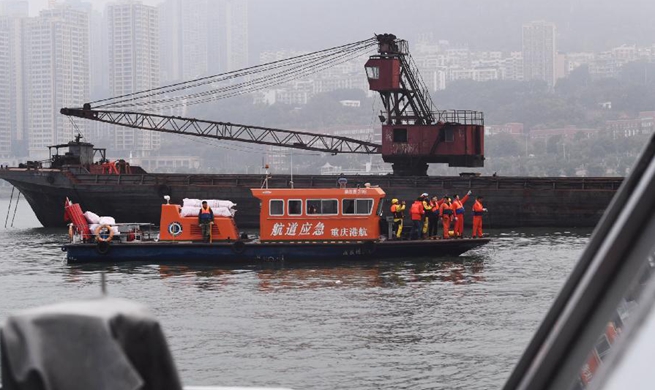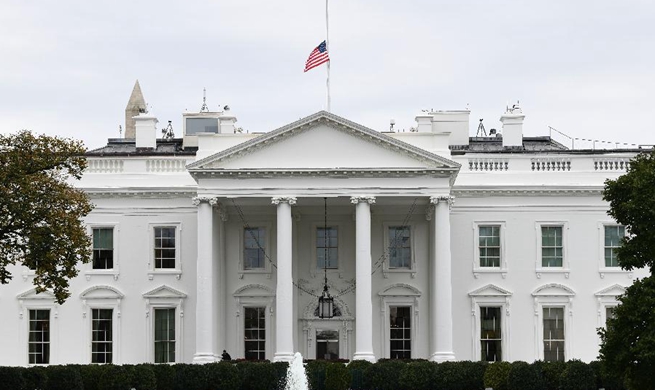TOKYO, Oct. 28 (Xinhua) -- Against the backdrop of rising trade protectionism in the world, it's important that China and Japan enhance economic cooperation, including third-party market cooperation to promote regional development and free trade, experts here said.
During Japanese Prime Minister Shinzo Abe's three-day visit to China that wrapped up on Saturday, 50 plus cooperation agreements worth more than 18 billion U.S. dollars were signed by the two sides at a forum on third-party market cooperation.
Experts here said that a stronger third-part market cooperation between China and Japan is not only in the interest of both countries, but also conductive to regional prosperity.
Kiyoyuki Seguchi, research director of the Canon Institute for Global Studies in Tokyo, said that Chinese and Japanese companies have great potential for cooperation in this regard as they are complementary to each other in many aspects.
Chinese companies often have "strong marketing skills, global strategic capabilities and application innovation capabilities, while Japanese companies are strong in the field of fundamental innovation, and the two sides could learn from each other and complement each other, said Seguchi.
Hidetoshi Tashiro, chief economist at Sigma Capital Ltd., said that it is practical for Japan and China to boost cooperation in the region along the Belt and Road.
"Japanese companies are cautious, good at teamwork, and Chinese companies are vigorous and good at making bold decisions. They could make a strong team together," he said.
In his opinion, medical care and finance are two of the areas that are most promising for cooperation between Chinese and Japanese companies in the region along the Belt and Road.
Japan has rich experience in coping with population aging, and could, through cooperation with China, provide know-how and references for the Belt and Road region, so as to promote healthy and sustainable development in the region, he said.
Meanwhile, China and Japan could also enhance financial cooperation in third-party markets, as both Japan and China have huge savings and could, through bilateral financial cooperation, provide more fund for the development of the region, said Tashiro.
Li Bo, a visiting fellow at Aichi University, said that the two sides have agreed to enhance financial cooperation through means including currency swaps.
Li said that the RMB Qualified Foreign Institutional Investors (RQFII) program is very attractive to Japanese financial companies, and some Japanese companies have announced plans to set up joint funds with Chinese investment institutions to support enterprises to develop third-party markets.
Nippon Express Co.,Ltd., meanwhile, is bullish about the prospect of cooperation between logistic companies between China and Japan, and has started to use the China Railway Express for transportation between Japan and Europe.
"The China Railway Express trains pass through a lot of Belt and Road countries, and could provide support for Japanese companies to enter into the market in Central Asia," said Yasushi Hirota, an official from the Chinese branch of Nippon Express.
"Meanwhile, Japanese-invested enterprises in China could also make use of this logistic means to provide products and services to countries along the Belt and Road," he said.










